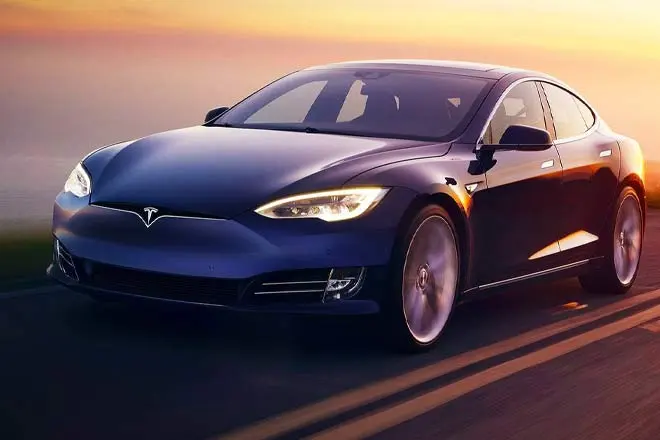In a groundbreaking move, Brazil is rapidly becoming a trailblazer in the electric vehicle (EV) sector among emerging markets. This shift is not just a win for the environment but also a significant step towards sustainable economic growth. According to a recent report by Bloomberg Green, Brazil saw a 40% increase in EV sales in the first half of 2023, demonstrating its growing commitment to cleaner transportation. In this article, we’ll explore how Brazil is setting the stage for electric vehicles, touching on infrastructure development, government policies, and what this means for emerging markets worldwide.
The Growth of Electric Vehicles in Brazil
Government Policies Driving Change
Brazil’s government has been instrumental in fostering the adoption of electric vehicles. In 2022, the Brazilian government introduced tax incentives for EV manufacturers and buyers, reducing the cost of ownership by up to 30%. These incentives have made electric cars like the Nissan Leaf and Hyundai Kona more affordable and appealing to the average consumer.
- Tax Breaks: Reduced import taxes on EVs and components.
- Incentives for Manufacturers: Subsidies for local production of EVs and batteries.
- Green Fleet Initiatives: Encouraging public transportation systems to transition to electric buses.
These measures are not only boosting local demand but also attracting international brands like Tesla and BYD, eager to tap into Brazil’s burgeoning market.
Infrastructure: The Backbone of EV Expansion
A robust charging infrastructure is crucial for the widespread adoption of electric vehicles. Brazil has made significant strides in this area, with over 500 new charging stations installed across the country in 2023 alone. Companies like EDP Brasil and WEG are leading the charge, investing heavily in the development of fast-charging networks.
- Key Locations: Charging stations are strategically placed along major highways and urban areas.
- Innovative Solutions: Solar-powered charging stations are being introduced to reduce carbon footprints further.
- Public and Private Partnerships: Collaborations between government agencies and private companies to expand infrastructure.
These efforts are making it increasingly convenient for Brazilians to own and operate electric vehicles, setting an example for other emerging markets.
Economic Impacts and Job Creation
The rise of electric vehicles in Brazil is not just an environmental victory; it’s also an economic opportunity. The EV industry is expected to create over 100,000 jobs in manufacturing, sales, and charging infrastructure by 2025. This growth is crucial for Brazil, which is looking to diversify its economy and reduce its reliance on oil.
- Manufacturing Hubs: New factories are being established in regions like São Paulo and Minas Gerais.
- Skilled Workforce: Training programs are underway to equip the workforce with skills needed for the EV industry.
- Export Opportunities: Brazil aims to become a leading exporter of electric vehicles and components in Latin America.
These developments are positioning Brazil as a leader in the global transition to sustainable transportation.
Practical Recommendations for EV Enthusiasts in Brazil
How to Charge Your EV
With a growing network of charging stations, powering up your electric vehicle has never been easier. Here are some tips for efficient charging:
- Plan Your Route: Use apps like PlugShare to locate nearby charging stations.
- Home Charging: Invest in a home charging station for convenience and cost savings.
- Public Charging: Take advantage of free charging stations in shopping malls and municipal parking lots.
Where to Buy Your Electric Vehicle
Considering buying an electric vehicle in Brazil? Here are some popular options:
- Dealerships: Brands like Volkswagen, Nissan, and Hyundai have showrooms with a range of EV models.
- Online Platforms: Websites like WebMotors and OLX offer a variety of new and used electric vehicles.
- Auto Expos: Attend events like the São Paulo International Motor Show to explore the latest EV innovations.
What to Compare When Choosing an EV
When selecting an electric vehicle, consider these factors:
- Range: Check the vehicle’s range on a single charge to ensure it meets your daily needs.
- Battery Life: Look for models with advanced battery technology for longer life and efficiency.
- Incentives: Factor in available government incentives to reduce the purchase cost.
Conclusion: Brazil Leading the Charge for Emerging Markets
Brazil’s proactive measures and robust strategies have set the stage for a sustainable future, not just for itself but as a beacon for other emerging markets. The country’s focus on infrastructure, policy, and economic growth highlights the potential of electric vehicles to revolutionize transportation globally. As Brazil continues to pave the way, it invites other nations to follow suit, embracing a cleaner, more sustainable mode of transit.
Are you excited about the future of electric vehicles in your country? Share your thoughts in the comments below, and let’s keep the conversation going about how we can all contribute to a sustainable future. With Brazil leading the charge, the future of electric vehicles in emerging markets looks brighter than ever.

